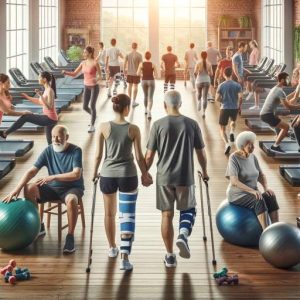Researchers at ORI believe that understanding and addressing the perspectives of patients and the public is paramount in medical research, especially in fields like rehabilitation following major surgery. This involvement ensures that research objectives align with the actual needs and concerns of those directly impacted by the outcomes. It fosters more patient-centred, accessible, and effective healthcare solutions by integrating real-world experiences and expectations into the development and evaluation of interventions.
Therefore, ORI researchers recently published a study titled “Understanding the Patient Perspective When Designing Future Rehabilitation Interventions after Hip or Knee Replacement Surgery,” in order to gain insights into the patient experience and expectations for post-surgical rehabilitation. This research underscores the need for a tailored, evidence-based approach to rehabilitation that addresses varying levels of pain, patient motivations, and the necessity for both social support and consistent, clear information.
Patient advisory groups played a crucial role in this study, advocating for rehabilitation plans that are personalised to each patient’s recovery journey. They emphasised the importance of clear, continuous communication between healthcare providers and patients to ensure understanding and support throughout the rehabilitation process. Additionally, these groups highlighted the significance of incorporating psychological support to manage the fears and anxieties associated with surgery and recovery, advocating for a holistic approach that recognises the interconnection between mental and physical health.
Senior author, Prof Tom Wainwright commented “The insights from this study underscore the necessity of patient and carer involvement in the research process. These findings will be crucial for informing the design of any future rehabilitation interventions, ensuring they are patient-centered and address the comprehensive needs of those recovering from hip or knee replacement surgery.“





